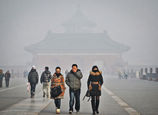
1826-1831
Yunnan Governor Ruan Yuan formulated a program for opium control and took measures to strength opium control.
1831
Under the order of Emperor Daoguang, Guizhou Procurator Song Pu carried out drug control. “Poppy is a common thing and can be used to produce opium. The ordinary people seek for profits and it is very likely that they will plant poppy in land lots, which will hinder farming and should be prevented. I will lead all my subordinates to strictly follow opium control program and carefully carry out opium control. We will punish opium trafficking whenever we find it, to make traffickers unable to vanish and make abusers find nowhere to buy opium. In this way, opium sources and trafficking can be eradicated.”
1838
Guizhou Procurator He Changling carried out strict poppy control, and adopted the alternative planting measure to eliminate the incentives for secret poppy planting from the economic basis. “In the spring of the 18th year in the reign of Emperor Daoguang, ten thousand of mulberry saplings were planted near the provincial capital. After the saplings grew to 2 or 3 Chi, people could freely transplant them. Moreover, 26,100 jin of cotton seeds were bought from Henan and other provinces in two batches. Relevant leaders sent the cotton seeds to localities, cracked down on and destroyed poppy, and taught the local people to plant cotton instead.”
1882-1883
Guizhou Procurator Li Yongqing ordered to strictly control opium, eliminate opium sources and arrest opium abusers, and proposed a law on prohibiting poppy planting, suggesting to organize regular checks in different areas to eliminate opium sources.
1912
April 18 Guizhou Commander-in-chief Tang Jiyao issued the Opium Ban.
1917
The British government sent a special envoy to inspect the implementation of opium seedling elimination in Guizhou. The envoy accepted the bribery of Guizhou Governor Liu Xianshi, and reported to the British government that Guizhou “had no opium seedlings.”



















![]()
